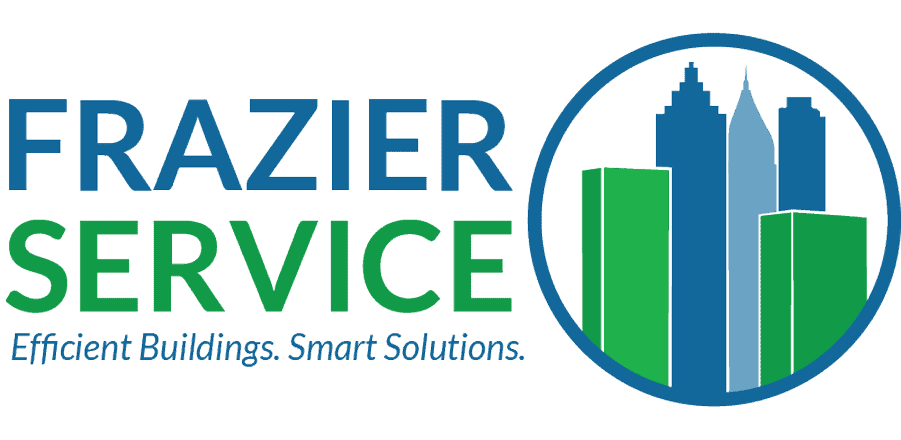
Signs of Bad Air Quality and What to Do About Them
It’s common for people to ignore signs of bad air quality issues—that is, if they’re even aware of them in the first place. Despite smell being one of the five senses, a light musk or odor often gets ignored as you grow accustomed to it. Leaving poor air unchecked, however, can lead to serious health problems. Testing the air quality in your office can help you determine its cleanliness and lead you to take any necessary steps to improve it.
You may not think anything is amiss when you smell something unusual, but sometimes, if not immediately addressed, it can be something that can have serious long-term effects. This article will teach you what to look for, what the cause of poor air quality is, and what to do next. Most of this information is based on the likelihood that the problem is related to an HVAC system, but these tips can be used regardless of whether this is the root cause.
Smells Are a Good Indicator of Indoor Air Quality (IAQ)
A variety of pollutants can cause you to smell something unusual, but the most common culprits are:
Mold or Mildew
The most common places to find mold or mildew are those where water accumulates. This could be by an AC vent, above or below a sink, or close to windows or doors, particularly when it’s cold outside.
Gas Leaks
Gas leaks commonly occur in HVAC systems after valves crack over time. A smell in multiple parts of the office or home hints that its source is likely a central location as opposed to a single room, indicating a localized issue that may be easier to deal with.
HVAC Unit Is Too Small
If you have window AC units, they may be too small for your room or house. There might not be enough airflow to circulate through your entire space. Likewise, if an office or home expands but the HVAC system is not adjusted, this can occur.
Many of these issues will be rooted in air filtration not happening correctly. However, water leaks are another area that need to be examined. Long-term water damage can lead to expenses and issues that can be thousands of dollars.
Lack of Filtration or Flow of Air in the Home or Office
When an air filter screen is not changed, it can collect dust and become ineffective. If there isn’t flow despite clean filters, there is likely a bigger issue that a technician should look at.
Another Indicator of Poor Air Quality in Offices: Skin Issues
If your skin suddenly becomes dry or your throat hurts, the air quality can be the culprit, even if you cannot smell anything. If you notice any of these symptoms in yourself or someone else when at work, it could be due to poor air quality:
- Dry skin
- Itchy eyes
- Throat pain
- Nosebleeds
- Headaches or inability to focus
- Coughing or wheezing
- Difficulty breathing
You won’t always be able to see or smell issues with the air quality. While it may seem impossible to tell, one trick is to keep track of when these symptoms appear. Having itchy eyes only at work while not experiencing them at home or over the weekend is a sign that the air quality at work is poor.
Be sure to inform your supervisor if you experience this. Long-term untreated issues could lead to workers’ compensation and lawsuits, so they are unlikely to ignore the problem. Be specific about what is happening, when it occurs, and if others around you are experiencing the same issue.
Common Signs of Bad Air Quality: Inefficient HVAC Systems
You might have a central air conditioner in your home or office, but that doesn’t mean it isn’t likely to spread dust and debris throughout the area. Be sure to check your HVAC unit’s filter regularly to ensure it’s clean and free of obstructions. Make sure your air filters are changed appropriately (normally every three months) by setting a reminder on your phone or laptop. Otherwise, the filters may go months without being changed, resulting in bigger problems in the future.
If you find that the filters are dirty or clogged with excessive amounts of dust or debris in short amounts of time, schedule an appointment with a professional technician immediately. Keeping the HVAC system in good working order will ensure that it provides proper ventilation for those who live or work there without affecting their health.
In any home or office, the HVAC system is one of the most important features. With it, you can keep cool on hot days and warm when it’s cold outside without spending a fortune on energy. It is just as important as any other major system, so make sure it’s functioning properly.
How to Test the Air Quality in Your Office
If you notice steam coming from the basement floor or ceiling while your air conditioner is running, this may indicate that your AC is having trouble condensing moisture. This phenomenon is called a “sweat” test, which is a good way to check for leaks in your AC system.
If you see steam coming out of these areas when it shouldn’t be (on days when there’s not an excessive amount of humidity in the inside), it could mean that there are hidden leaks somewhere in the ductwork or HVAC system. It might also be time to hire a professional who can perform more accurate leak tests than a homeowner or work supervisor can.
Frazier Service: Your Top Choice For IAQ Solutions
Poor air quality affects your health in many ways, so you should know what the signs are and how to prevent them. Ignoring the signs or putting off maintenance can only lead to bigger and more expensive problems down the road, not only for the HVAC system, but for your health as well. If you notice any of these signs in your home or office, consult a professional for advice on how to improve the air quality and keep everyone healthy.








